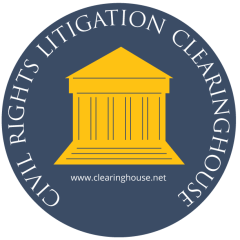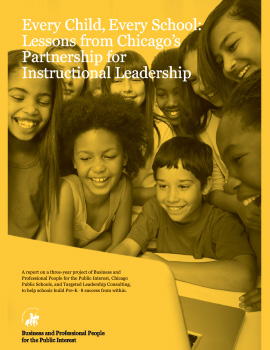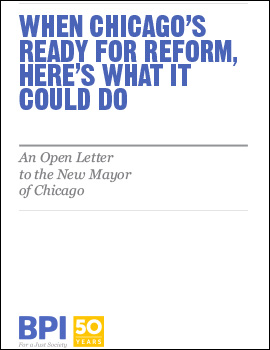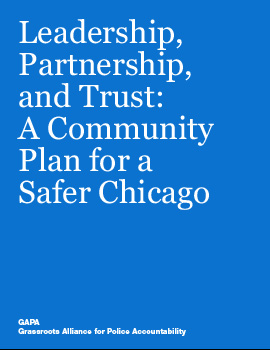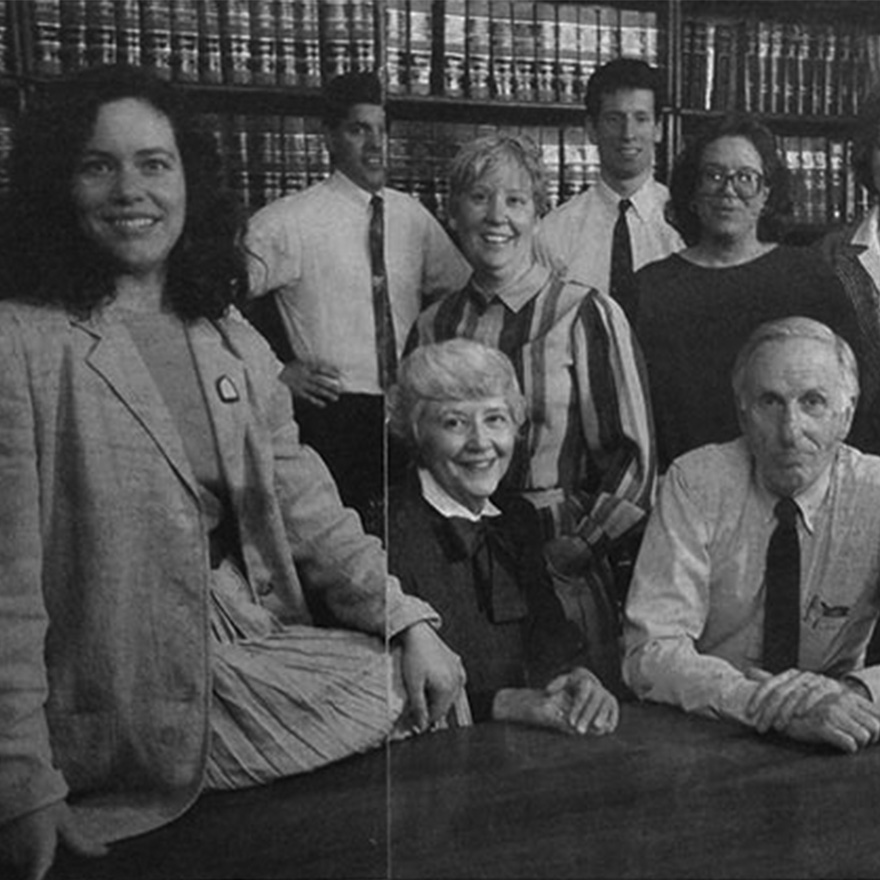
History of Impact for Equity
Since its founding in 1969, Impact for Equity has been a catalyst for racial, economic, and social justice in Chicago and Illinois.
Originally named Businessmen for the Public Interest, and later renamed Business and Professional People for the Public Interest, or BPI, we were founded with the belief that the public interest should be served by fierce advocates who take on pressing issues of inequity with determination and fearlessness.
Within a year of our founding, the organization could claim an impressive string of victories that ranged from stopping the construction of an airport in Lake Michigan to the expansion of the lunch program in Chicago’s public schools.
Since our earliest days, Impact for Equity has led Chicago in fighting against racial and economic segregation in public housing and in promoting investment in communities to provide healthy and affordable housing, free of barriers, for all. Our work began in 1970 with the Gautreaux case, filed to address racial segregation in the construction and resident assignment in Chicago public housing. The Gautreaux case established, in a unanimous decision by the United States Supreme Court, the legality of regional remedies to address housing segregation. Our work to provide a range of remedies to address this structural remedies in Chicago public housing continues to the present day.
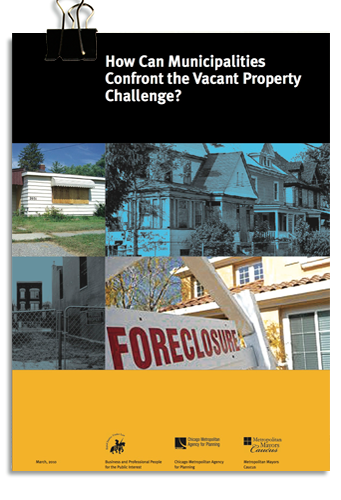 In the private housing market, our impact has been similarly profound. In the 1980s, the organization vindicated fair housing strategies in a lawsuit brought on behalf of the South Suburban Housing Center. With a focus on the creation and preservation of housing opportunities for low and moderate-income people, we worked across northern Illinois to create incentives for affordable housing and address vacant properties. We led efforts to secure the passage of the Affordable Housing Planning and Appeal Act in 2003, a precedent-setting measure designed to dismantle exclusionary barriers to affordable housing in communities across Illinois.
In the private housing market, our impact has been similarly profound. In the 1980s, the organization vindicated fair housing strategies in a lawsuit brought on behalf of the South Suburban Housing Center. With a focus on the creation and preservation of housing opportunities for low and moderate-income people, we worked across northern Illinois to create incentives for affordable housing and address vacant properties. We led efforts to secure the passage of the Affordable Housing Planning and Appeal Act in 2003, a precedent-setting measure designed to dismantle exclusionary barriers to affordable housing in communities across Illinois.
We also have not hesitated to intercede when a company has recklessly jeopardized the environment and the surrounding community, halting construction of a power plant in the Indiana Dunes in the 1970s and helping to shut down a dangerously defective Chicago toxic waste incinerator in the 1980s. From reducing industrial hazardous waste and improving its disposal, to promoting safer, more effective pest control strategies, we have significantly improved the Chicago region’s environment.
Since 1970, when we began debunking the belief that nuclear-generated electricity would be “too cheap to meter,” we also have been a staunch defender of consumer rights. Our lawyers filed a lawsuit against Commonwealth Edison over safety and cost issues in its nuclear generation programs, which, in 1993, resulted in a $1.3 billion refund to consumers – the largest such public utility refunded ever awarded at the time.
Education and early learning have been another critical focus of our work. In 1998, we launched the Chicago School Policy Forum, bringing advocates, educators, and the business and philanthropic communities together to consider pressing school reform topics. In partnership with a broad coalition of community partners, in 2012, we launched a comprehensive Early Childhood Learning Initiative in the Altgeld Gardens community, which today stands as an enduring resource for children and families.
Our battle to create and perpetuate a culture of integrity in the halls of power has also taken many forms over the decades. In 2016, the Illinois Supreme Court ruled unanimously for the Independent Inspector General of Cook County, represented by our legal team, affirming the Inspector General’s jurisdiction over county offices headed by independently elected officials and promoting transparency and accountability in county government. In 2019, we published “When Chicago is Ready for Reform,” calling on Chicago’s new mayor to strengthen the oversight powers of Chicago’s inspectors general.
Beginning in 2014, our team worked in partnership with the Illinois Department of Juvenile Justice to develop a strategic plan to transform Illinois’ juvenile justice system to focus on education and rehabilitation and to dramatically reduce the number of children in prison. This deepening engagement in criminal legal systems led us to confront the challenge that many justice-involved individuals face upon release – finding safe and affordable housing. In 2019, we created a program in partnership with the Cook County Drug Treatment Court and the Housing Authority of Cook County to provide increased access to reentry housing and reentry supports. We also supported the investment in higher education programs in Illinois prisons, releasing recommendations for reform in a 2022 report calling for the development of consistent and transparent policies in the Illinois corrections system.
Following our 2015 participation on the Mayor’s Task Force on Police Accountability, we have focused on strengthening police accountability systems and reimagining the creation of public safety in Chicago and Illinois. Years of partnership with the Grassroots Alliance for Police Accountability resulted in the 2021 passage by the Chicago City Council of the Empowering Communities for Public Safety ordinance, which created a citywide community oversight commission with the power to bring about systemic police reform. 
In 2023, we released “A New Vehicle for Stop and Frisk: The Scope, Impact, and Inequities of Traffic Stops in Chicago,” which found that a dramatic increase in traffic stops in Chicago did not contribute to public safety and had harmful impacts on the Chicago’s Black and Brown residents.
In 2023, the organization rebranded from BPI to Impact for Equity to better express our mission, inspire action and communicate our ongoing commitment to seeking justice through meaningful action.
Over its history, we have been recognized for its contributions to the movement for justice. Writing in 1980, the Chicago Sun-Times Editorial board remarked that “BPI’s projects show the scope of the group’s concern for the common good. They also show how lucky Chicago is to have such public interest law pioneers.” We have been honored as a recipient of the MacArthur Award for Creative and Effective Institutions and have received the Award for Excellence in Public Interest Service from the judges of the United States District Court for the Northern District of Illinois.
More than fifty years after our inception, we have grown from a small, upstart public interest law firm to one of Chicago’s most respected law and policy centers. We are the organization to which many turned when creative, cooperative legal strategies were needed. Today, Impact for Equity continues to build on its history of combating systemic inequities and fighting for racial, economic, and social justice.
Watch and learn more about Impact for Equity’s history

